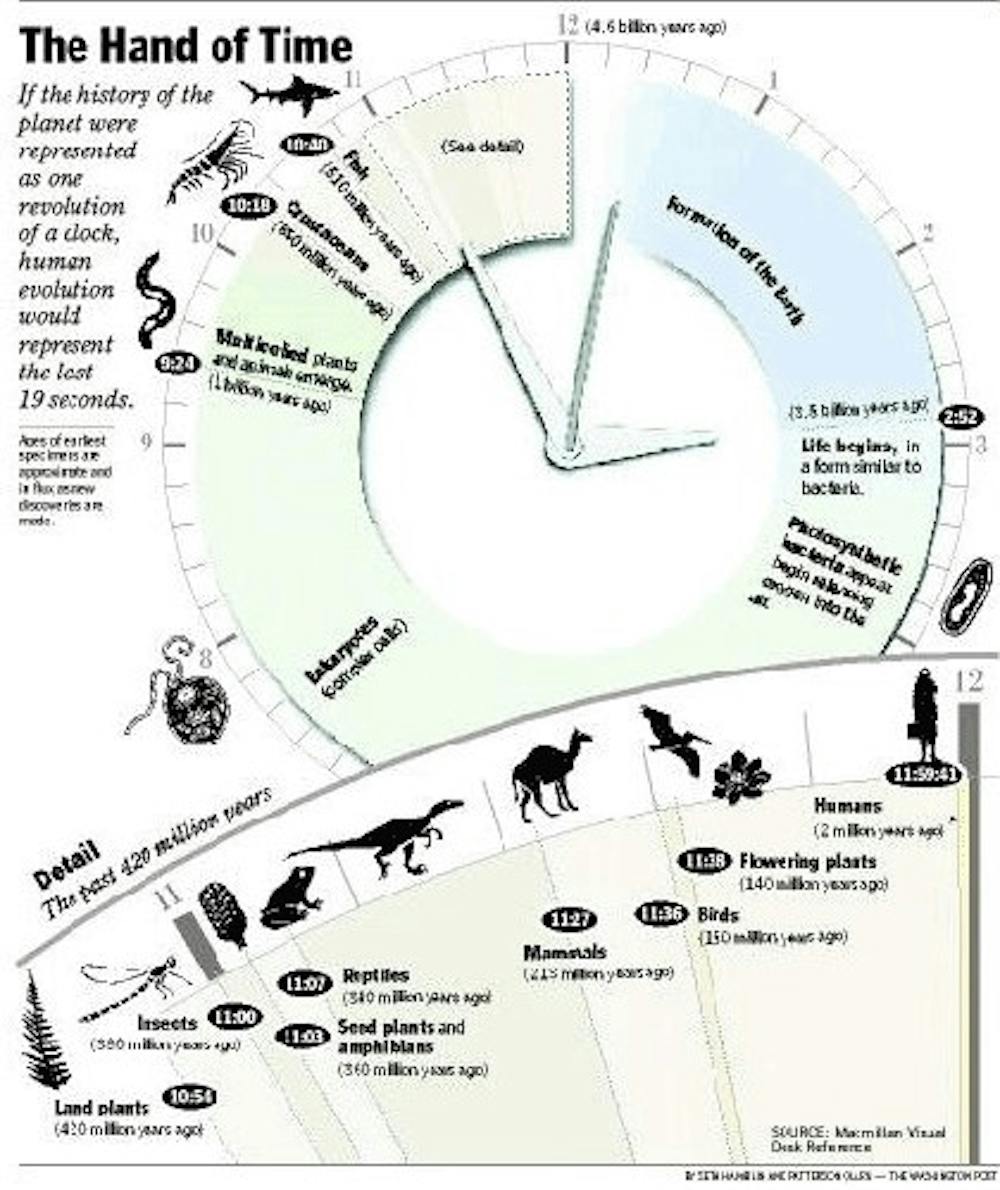While much of the country hotly debates evolution versus intelligent design, and whether the latter should be taught to children in schools, Buffalo's public schools seem to have opted out of the discussion.
Joseph Greco, an assistant principal at Kenmore West Senior High School, said intelligent design has not been an issue that has been brought to his attention in the administration.
"If it's taught, or anything that has to do with creation, you have to go with all the models, including the religious aspect or none of them at all," he said. "If we focus on one, the perception could be that we are only promoting one theory of how the world was created. We could be offending everyone. We have to teach all of them in an educational format."
One of the primary concerns with intelligent design -- a theory that suggests life began and changed according to a plan created by some unknown force or intelligence -- is its ties to religion, which is supposed to be separate from state institutions like schools.
Greco said although the issue hasn't been at the forefront in Buffalo, it is something teachers definitely worry about.
"Some teachers might keep away from the issue because they don't want to agitate parents or people in the communities," Greco said. "Some people might just not teach anything to avoid the conflict."
Linda Leuchner, a science teacher at Kenmore West, said that as far as she knows, the debate is a cold one in Buffalo.
"As you know, evolution is always a hot topic in the southern states," Leuchner said.
Leuchner, a longtime teacher at Kenmore West, primarily teaches biology and Advanced Placement biology.
"I have always presented the topic of evolution to the students with the understanding that today's scientists believe in evolution and speciation," Leuchner said. "My lessons explain to the students why scientists believe in evolution. If they don't accept it as truth, that is always okay. I never had a problem in all my years of teaching evolution."
At the college level, it appears to be even less of a concern for professors, even at Canisius College, which is a Jesuit institution.
"To my knowledge there is no issue related to intelligent design at Canisius. We teach evolution in our biology department," said Paula Dehn, a professor of biology and chair of the department.
At UB, many students say they are ambivalent about the issue. While not every student is in favor of intelligent design, some say that others are entitled to believe what they want.
"I think (students) should be exposed to the idea of creationism or intelligent design just so they are aware of what other people believe," said Michelle Balsan, a third year law student. "Just like they should be exposed to other religions so they don't just think that everyone prays in a church. People should be aware, and it should be taught as a theory just like evolution and Darwinism."
Other people within the SUNY community, however, have taken a stronger stance on the intelligent design debate.
Gerald Rising, a SUNY distinguished teaching professor emeritus at UB, has been a primary target of those who disagree with evolution. Rising wrote a column that ran in The Buffalo News in September entitled "Irresponsible Design," in which he said "evolution, like gravity, is a sound and well-tested scientific theory or explanation. ID, on the other hand, hasn't been shown to teach us anything about the natural world."
"If we don't teach our students solid biology, including its fundamental idea, evolution," Rising continued, "we cannot expect (sciences) to progress and to retain for us our position of world leadership in those fields."
After writing that people need to stop confronting science with their faith, Rising said he got a strong series of replies.
"The responses I received by e-mail ranged from 'You have no right to express your opinion,' even though my column appears in the newspaper's 'Viewpoints' section, or 'You don't have the credentials to speak of such matters,' " Rising said.
Rising said he encourages school boards to protect their science teachers from attacks from the community. So far, intelligent design has been a non-issue at colleges.
"Rarely does it come up at the college or university level," Rising said. "One writer claimed that his professor at Geneseo had agreed with him about (intelligent design). It turned out when I asked him to identify his professor, that the professor had merely said something to the effect that the student could believe what he wished."
According to a 2001 Gallup poll, 45 percent of Americans believe in creationism, 37 percent believe in intelligent design and only 12 percent believe in evolution.





